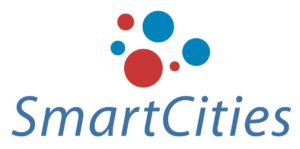
To become a Smart City you need to focus on what you want to deliver. The Smart Cities approach to developing better e-government sets out the 3 key themes and the 3 methods we used to successfully develop and deliver better, more customer-focused e-government and electronic services.
Key themes in Smart Cities – delivering e-government
1. Customer services
Local governments in the North Sea Region are working hard to develop new online and offline services for their citizens and SMEs. The cities and regions that took part in the Smart Cities project rethought how they delivered services to the public, and which delivery channels they should use – face to face, internet, mobile, telephone… At the same time, they reorganised their internal service delivery processes and back office functions.
These new services and interfaces were personalised, user-centric, geolocated and usable – this happened because these services were co-designed, in a process that brings citizens, administrators and developers together to jointly improve and refine e-services.
2. Customer profiling
Public services need to adapt to the needs of citizens – rather than service providers. This means bringing together a range of data sources to develop accurate profiles of target customer groups. This allows us to a) better understand the needs of citizens, b) to identify and use the most appropriate service channels for different target groups, and c) to proactively provide services that will meet their needs.
The Smart Cities project partners used a wide range of geographical, transactional, demographic and survey data to reengineer services. This ensured that services are designed and implemented in ways that recognise the specific needs of different groups of citizens.
3. Wireless services
Mobile is the future for e-government and new forms of customer service. Smart Cities’ partners developed a range of new and innovative services for mobile platforms. New forms of urban wireless networks were tested, and the lessons that were learned and the services and technologies that were developed were mainstreamed across the North Sea Region.
The Smart Cities Approach
Delivering against these areas required a multi-strand approach that built on existing skills, worked with users, and brought in targeted expertise to support innovation and service (re-)design.
1. Co-design
What’s the sense of developing services if people don’t use them? The most underused road to innovation is through asking your customers, not only to assess how services are delivered, but also to helping design them.
Co-designing services with citizens leads to more sustainable services that are more effective and which provide greater levels of customer satisfaction. Government partners listened to the needs of their citizens, and these users were deeply involved in the e-service development process.
2. Academic network
The Smart Cities regional academic network was a people-based innovation network based in universities and university colleges from six countries in the North Sea region. The academic network gave government partners access to a wide range of expertise and competencies that they used as they rethought and improved electronic service delivery.
Academic partners helped the government partners by helping to identify and define the key questions and business challenges. The academic network evaluated the impact of local and transnational work in the project and disseminated findings and lessons learned to the North Sea region and to academic and practitioner communities.
3. Mainstreaming & public engagement
National governments are a key factor for transferring technology and solutions to other regions and municipalities. A number of National and Central governments became partners of the Smart Cities project: the knowledge and commitment from these partners will lead to a sustainable transfer of the services developed in the project to other areas in the North Sea Region.
Smart Cities is part-funded by the Interreg IVB North Sea Region Programme of the European Union.